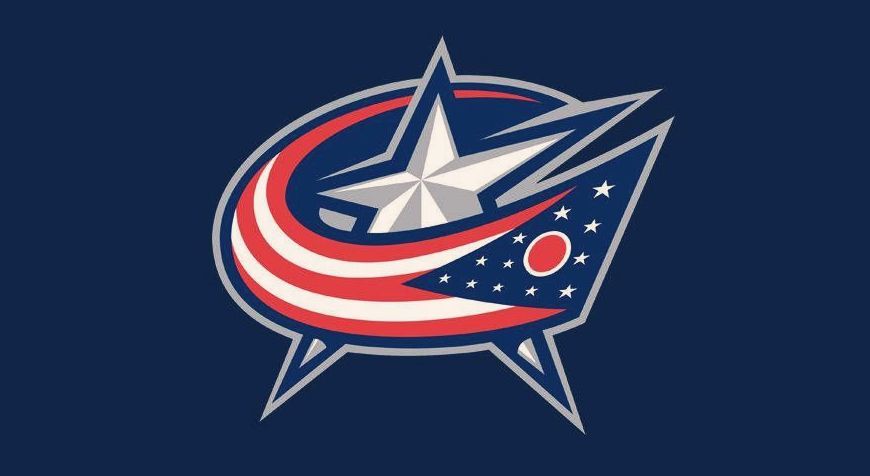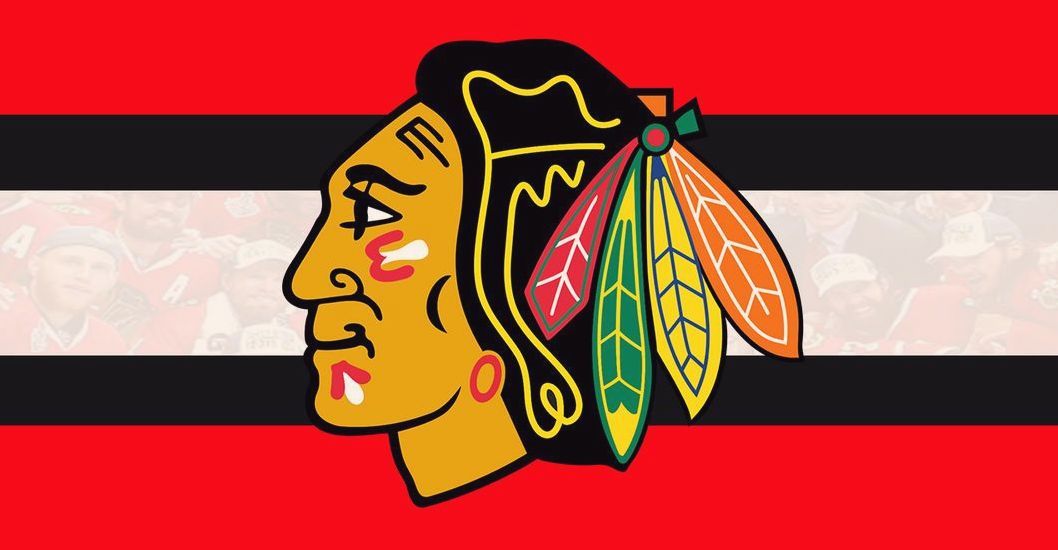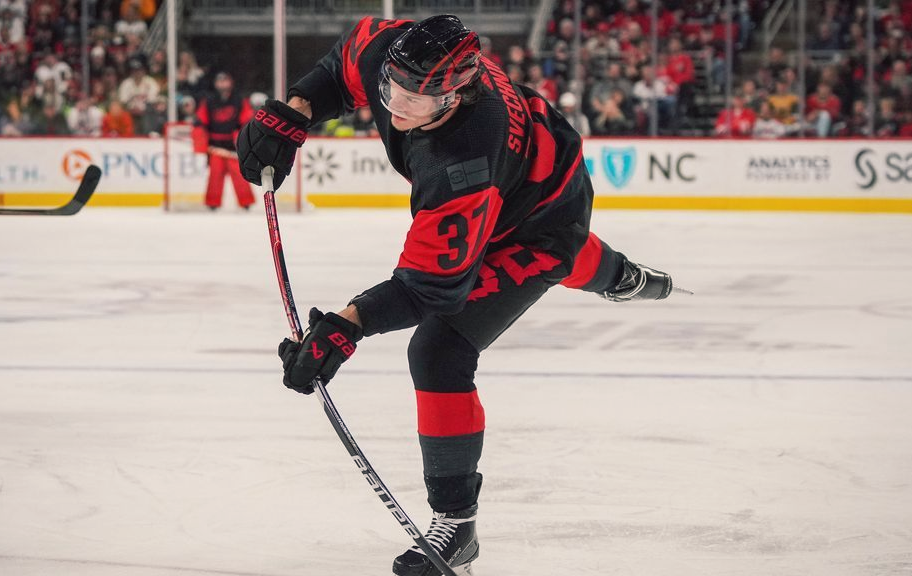Stanley Cup Final Preview
Vegas Golden Knights vs Florida Panthers
Game 1: Saturday 6/3 8:00 @ Vegas
Game 2: Monday 6/5 8:00 @ Vegas
Game 3: Thursday 6/8 8:00 @ Florida
Game 4: Saturday 6/10 8:00 @ Florida
*Game 5: Tuesday 6/13 8:00 @ Vegas
*Game 6: Friday 6/16 8:00 @ Florida
*Game 7: Monday 6/19 @ Vegas
*
- If necessary
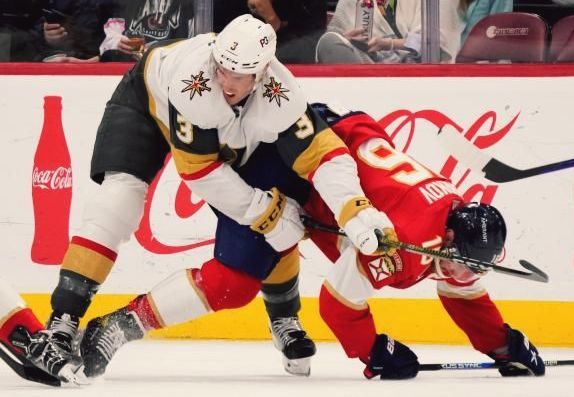
After 82 games, three rounds of playoffs, and eight grinding months, only two teams are left to battle for the greatest trophy in sports. While many “traditionalists” from northern cities have voiced their disgust with a cup final consisting exclusively of non-traditional hockey markets, I for one am thrilled that we’ll get to see one of these franchises lift Lord Stanley for the first time in their history, and grow the game in areas that aren’t normally associated with the greatest game in the world.
This matchup is ripe with rich storylines, with each squad earning their berth in wildly different ways. Vegas led the Western Conference for the majority of the season, finishing with 111 points and securing home ice and favorable seeding throughout the postseason. They have been incredibly consistent since the season opener in October, and have arguably the deepest roster in the league at all positions - a strength they leaned on to make it this far despite numerous key injuries throughout the regular season and playoffs (especially in net). New bench boss Bruce Cassidy has deployed this depth with surgical precision, using all four lines to push the pace of play and wear down opposing top lines so that his stars can capitalize on opportunities against weaker matchups. They made quick work of the gritty Jets, stymied the high octane Oilers, and outlasted a Stars team that featured the best traits of both previous opponents, all without the media hype that normally surrounds a number 1 seed, and are now only four wins away from achieving owner Bill Foley’s lofty goal of winning a championship in the franchise’s first six years of existence.
Florida, on the other hand, barely snuck into the playoffs thanks to a hot run down the final stretch of the season (with some help from the Penguins losing to lottery teams in their last two games) and some unexpected heroics from backup goalie Alex Lyon. Their reward for making the dance was a first round date with the record-setting Boston Bruins, and it started as expected with the President’s Trophy winners jumping out to a 3-1 series lead before everything shifted. Sergei Bobrovsky, who had reclaimed his starting job in game 4, turned in the first of many spectacular performances this postseason and the Panthers rattled off three consecutive wins to topple the towering Bruins. The momentum only grew from there, as they went on to dispatch Toronto in 5 games before sweeping Carolina to earn their first Cup Final appearance since 1996. They were huge underdogs in every single series, but thanks to their full team effort to execute head coach Paul Maurice’s systems, some timely scoring, and the impenetrable wall of Bobrovsky, this Panthers team has become more than a sum of their parts and should give the Golden Knights everything they can handle.
To evaluate this matchup, I’ll be comparing four major factors of each team: forward lines, defensive pairings, goaltending, and special teams. Let’s kick it off with the guys that get paid to put the puck in the net.
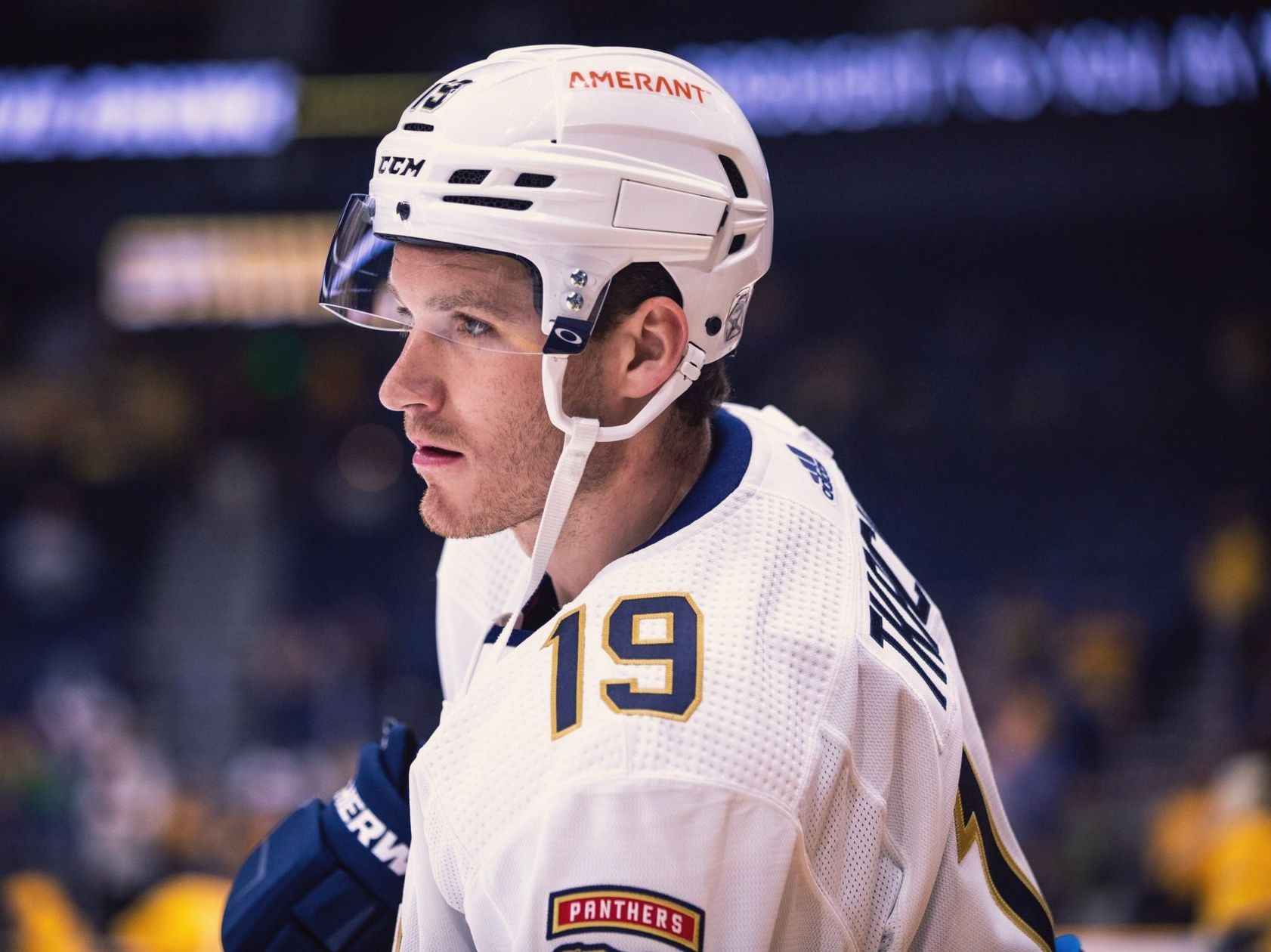
Forward Lines
Vegas
Ivan Barbashev - Jack Eichel - Jonathan Marchessault
Brett Howden - Chandler Stephenson - Mark Stone
Reilly Smith - William Karlsson - Mike Amadio
Will Carrier - Nicolas Roy - Keegan Kolesar
Florida
Carter Verhaeghe - Aleksander Barkov - Anthony Duclair
Nick Cousins - Sam Bennett - Matthew Tkachuk
Eetu Luostarinen - Anton Lundell - Sam Reinhart
Ryan Lomberg - Erik Staal - Colin White
Neither of these lineups fit the stereotypical mold of 1st, 2nd, 3rd, and 4th lines. Vegas has arguably the deepest group of talented forwards in the entire league, which is a big reason why they made it this far. They basically have three top lines that rotate based on matchups, and a fourth line that could be considered a second line on quite a few NHL teams.
Jack Eichel is the elite center they’ve longed for since their inaugural season, and he’s been exceptional during this run with 6 goals, 12 assists, and 18 points in 17 postseason games. He’s deceptively fast, has the strength to protect the puck when challenged physically, and his lethal shot paired with an elite hockey IQ make him a threat to score or set up his teammates from anywhere in the offensive zone. He’s built a ton of chemistry with longtime Vegas sniper Jonathan Marchessault and underrated deadline addition Ivan Barbashev, who’s strengths compliment Eichel’s to give the Golden Knights a deadly scoring unit.
Much of that unit's success is made possible by the work William Karlsson, Reilly Smith, and Brett Howden have put in throughout these playoffs. Cassidy relies on them to eat the toughest minutes against the biggest scoring threats opposing teams have to offer, freeing up Eichel and company to run wild against softer competition. Not only has this unit shut down their opponents, they’ve forced mistakes and capitalized on the resulting turnovers to combine for 15 goals in the playoffs, (Karlsson leads the entire team with 10).
This leaves scoring sensation Chandler Stephenson to center captain Mark Stone and gritty winger Brett Howden, forming a utility line that does everything well. They’re often relied upon to shut down secondary scoring or give the Karlsson unit a break from elite gamebreakers, but they can create plenty of offense as well and pin opponents in their own end, eventually either scoring or wearing down opponents and maintaining possession while rotating to the bench so the next line can finish the job.
Finally, the fourth line has primarily consisted of three monstrous forecheckers who’ve shown flashes of offensive magic: Keegan Kolesar, William Carrier, and Nicolas Roy. They’ve all blossomed this season, earning extensive usage in the playoffs, but if any of them falter Casssidy has a couple of great options in the press box chomping at the bit to get back into the lineup. If Vegas struggles to score against this tenacious Florida team, Phil Kessel brings a lethal shot, elite offensive instincts, and championship experience with his two Stanley Cup rings. If turnovers become a problem, Teddy Blueger can provide a stabilizing presence at center ice with his veteran leadership and responsible decision making.
On paper this forward group gives the Knights an undeniable advantage, but the games aren’t played on paper and Florida has been the underdog in every series they’ve won to get to this point. They’ve got talent and tenacity throughout their lineup that just might be able to match up against these guys.
While Vegas has three “top lines”, the Panthers have two, followed by a sneaky good third line and a fourth line that has shown some scoring punch when strategically deployed. Matthew Tkachuk has received most of the attention among Florida forwards, and rightfully so. He leads the Panthers with 21 points in 16 playoff games (including four unforgettable game winning goals) and he’s a magician down low, regularly setting up his linemates for prime scoring chances with unbelievable passes from below the goal line. His physical play strikes fear into the hearts of opposing defensemen tasked with retrieving pucks along the endboards, and it’s mirrored by his centerman Sam Bennett who’s beginning to challenge him for the title of Rat King. Along with Nick Cozens, they form one of the most effective forechecking units in the league and create offense out of thin air by forcing turnovers with relentless, organized pressure. I expect Cassidy to deploy the Karlsson line against this group to start the series when he has the advantage of last change on home ice in an attempt to stifle them and give Eichel some room to work, but the next trio of Panthers present an entirely different challenge.
Aleksander Barkov is one of the most effective shut-down centermen in the league, and will almost certainly replace Patrice Bergeron as the perennial owner of the Selke Trophy once the latter retires. He’s done an exceptional job of neutralizing some of the top offensive players in the league during the postseason, holding David Pastrnak and Auston Matthews to a combined 3 even strength points through 12 games in the first two rounds. While he suffocates scoring chances and generates turnovers, wingers Carter Verhaeghe and Anthony Duclair find space to receive the puck and roast opposing defenders with their blistering speed. This is technically Florida’s shut down line, but they provide plenty of offense as well. Maurice would love to see Eichel deployed against this group but I have a sneaking suspicion that Cassidy will use Stone’s defensive prowess and Stephenson’s speed in an attempt to neutralize them and create a matchup nightmare with Eichel against the next trio we’re going to talk about.
Sam Reinhart is the focal point of Florida’s third line, providing clutch goal scoring throughout these playoffs, but Eetu Luostarainen and Anton Lundell haven’t offered much beyond responsible puck management. I could really see this group struggling if matched up with the speed, physicality, and scoring touch of Echel, Marchessault, and Barbashev. If they can’t mitigate the damage those three are sure to do then this just might be the matchup that determines the series.
Florida’s fourth line isn’t quite as big or strong as their counterparts in Vegas, but they do have the ability to score when given the opportunity. Maurice has mostly used them for offensive zone draws against mediocre competition, but if they can’t handle the Knights’ transition game I could see their minutes really tanking in this series. Maybe they prove me wrong, but I have a feeling we won’t be seeing much of them until game 3 when Maurice can control who they’re deployed against.
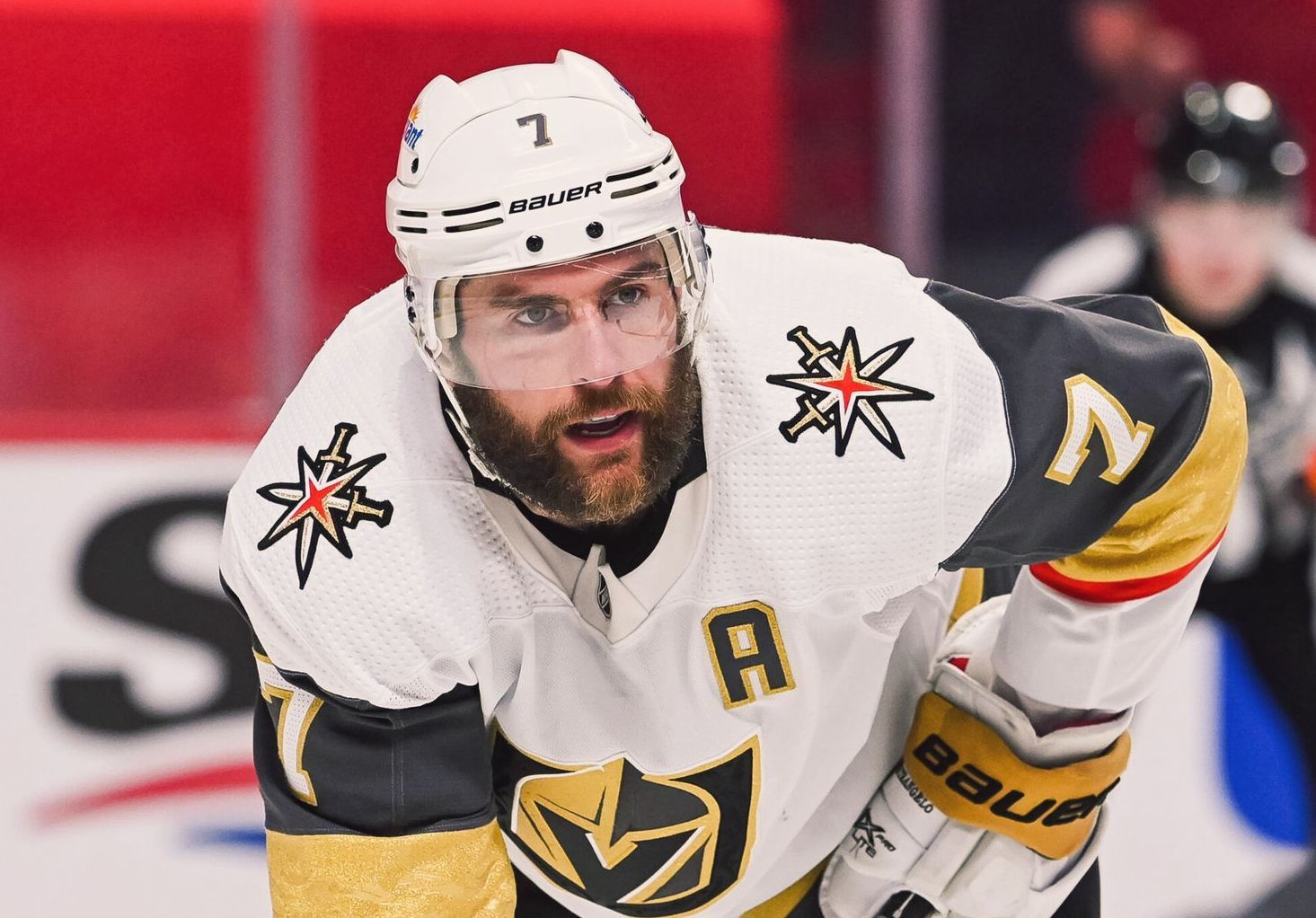
Defense Pairings
Vegas
Alec Martinez - Alex Pietrangelo
Brayden Mcnabb - Shea Theodore
Nicolas Hague - Zach Whitecloud
Florida
Gustav Forsling - Aaron Ekblad
Marc Stall - Brandon Montour
Josh Muhara - Radko Gudas
Again, Vegas has a clear advantage when it comes to depth. Every single defenseman is experienced, reliable, and absolutely massive, with the blue line boasting an average height of 6’3” and weighing in at an average of 212 pounds. They are incredibly physical, disciplined, (they were the least penalized team in the regular season) and play incredibly well as a five-man unit with the forwards to quickly and effectively retrieve pucks and break out of their zone with short, simple passing plays.
Their size is an obvious strength against the wrecking balls Florida sends in on the forecheck, as they can withstand heavy hits and win puck battles when retrieving dumps off the boards, but many of these behemoths lack foot speed, which is something the Panthers will look to exploit. Theodore is really the only member of this group with elite mobility, and will probably be relied upon heavily to escape pressure and skate the puck to safety if Florida's elite forecheck is able to cut off passing lanes. Whitecloud isn’t terrible at this either, and he’s impressed in the playoffs so he may see increased minutes if this becomes a major part of Cassidy’s gameplan, but the rest of these guys are big, heavy defenders who excel at protecting the netfront and limiting chances while leaning on their teammates to execute breakouts. If Florida can get pucks behind them and win races, they may be able to find some chinks in the armor that not even Connor McDavid could expose.
The Florida blue line comes in at the opposite end of the spectrum. They barely average 6’0” and 199 pounds, but they sure can skate. Brandon Montour is the engine of this mobile group and he’s an absolute rover, flying through all three zones to erase rush chances, break the puck out, and fire filthy passes to his forwards or launch bombs of his own into the back of the net. He’s really come into his own this year, posting career highs in goals and points in the regular season and scoring 6 goals and 9 points in the first two rounds of the playoffs before the defensive battle in the conference final against Carolina. Part of his success has come from the reliability of cagey veteran Marc Stall in front of the net, winning physical battles and closing passing lanes while allowing Montour to roam free.
Aaron Ekblad has been the best Panther when it comes to shutting down offense, he’s got great gap control, is even better in front of the net than Staal, and has started to find his offense again in the playoffs after an underwhelming regular season. He’s formed a solid pairing with the speedy Gustav Forsling, and should be able to handle whoever Cassidy throws over the boards against him.
The third pair is where Florida could be exposed, as it’s a complete wildcard. Radko Gudas is an absolute wrecking ball, and loves to use his speed and strength to deliver bone crushing hits. This is a great asset when he picks his spots wisely, but occasionally he overcommits and misses his mark against creative puck carriers who blow past him for grade-A scoring chances. Josh Mahura looks to have the makings of a quality two-way defender and he’s been decent in limited minutes, but this is the first time he’s hung on to an NHL spot for an entire season and his inexperience could be a concern against this veteran Vegas attack.
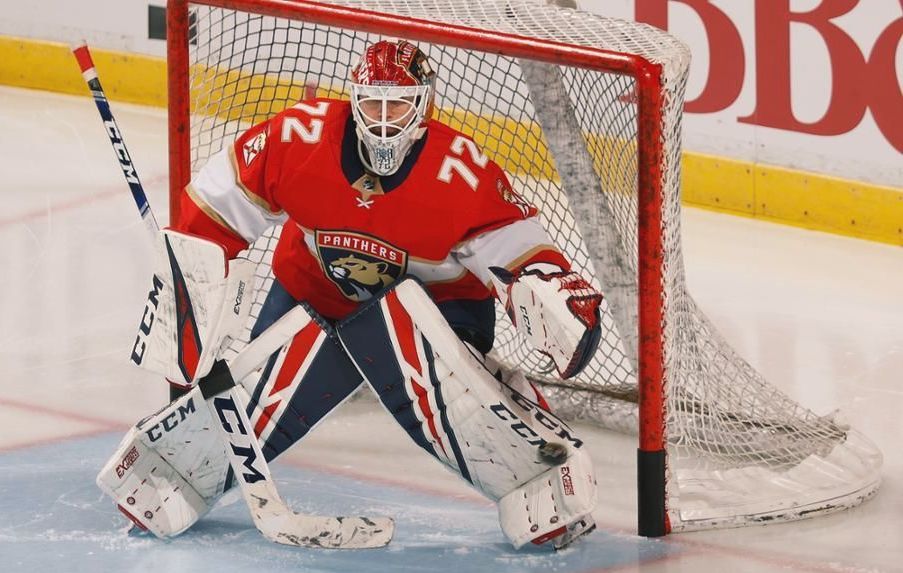
Goaltending
Vegas
Adin Hill comes into this series as a spectacular surprise, boasting a .937 save percentage after being forced into the starting role following Laurent Brossoit’s injury in game 2 of the second round. He did an exceptional job of working with his defense to shut down the best offense in the league against Edmonton before stifling Dallas’ superstars in the conference final. He’s shown no signs of stagefright in the biggest moments, so I have no reason to believe he won’t continue this run in the biggest games of his career, but he’s never face a team as good at creating chaos in the crease as Florida and he doesn’t have a large body of work to evaluate, so it’s not crazy to think that Tkachuk and company might find a way to crack him. If they do, Cassidy has the luxury of turning to a legend in backup Jonathan Quick. He’s the owner of two Stanley Cup rings and a Conn Smythe Trophy, and always finds a way to perform when the stakes are high, although he’s at the tail end of his career so it’s hard to predict whether or not he can handle the workload of a starter in the cup final.
Florida
Sergei Bobrovsky once again looks like the guy who won two Vezinas in Columbus, and has absolutely stoned some potent offenses. Florida’s D-zone coverage has helped him out, but he’s erased a ton of breakdowns by making impossible saves against elite shooters. His lateral movement is lightning quick and he tracks pucks through traffic like nobody else. These attributes have led to a .935 save percentage and a record of 11-2-0 in the postseason, and if he keeps it up he’ll be a contender for the Conn Smyth. The only way to beat him is to shoot for the cross bar, as the low stance he uses to fly from post to post can leave a little room upstairs. This hasn’t been a problem so far, as Florida’s team defense has taken time and space away from elite shooters in tight, but Vegas is deeper than any team they’ve played so far and has a ton of shooting talent, so Bob will need to be at his best when breakdowns inevitably occur.
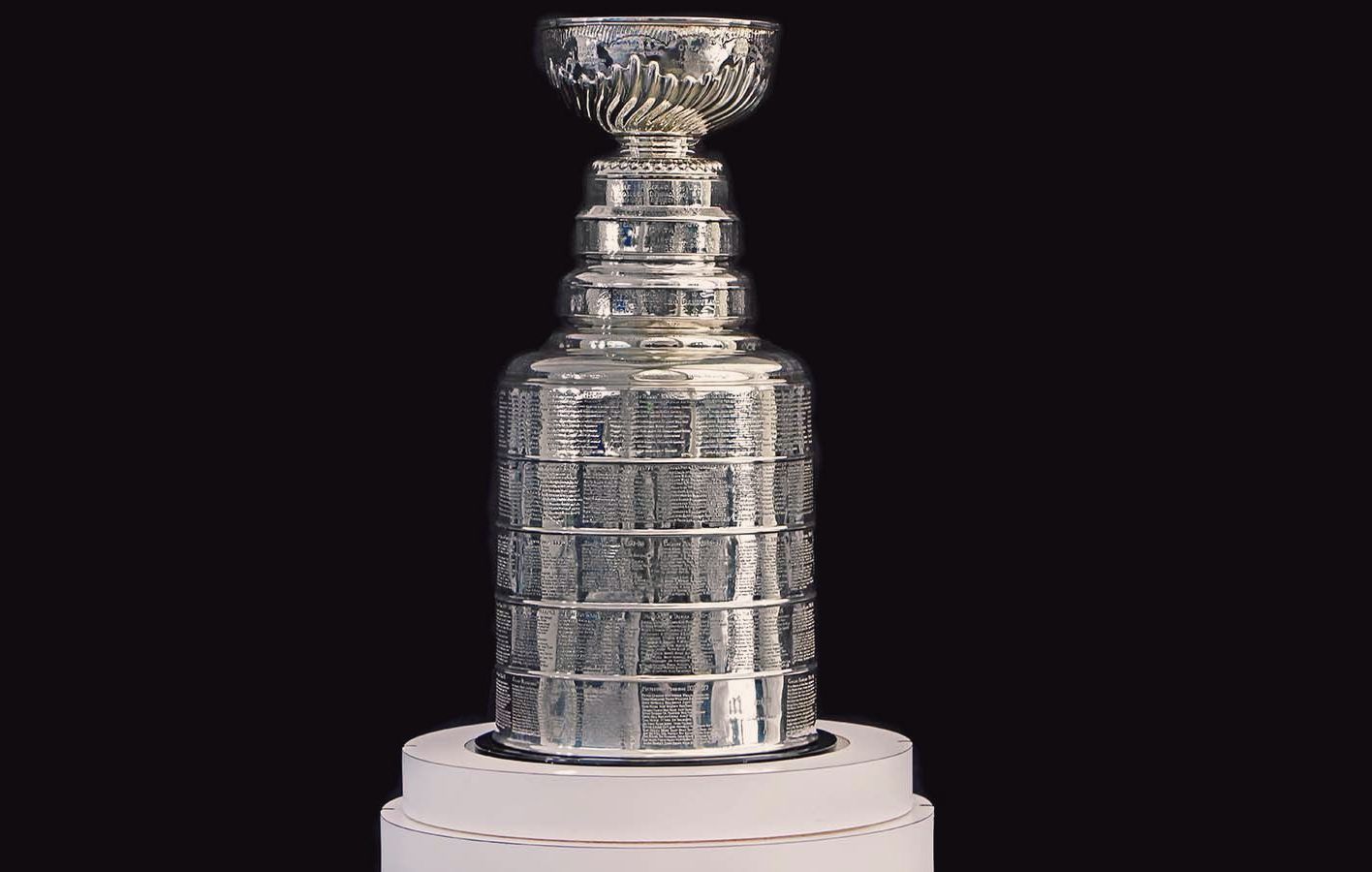
Special Teams
This is going to be Florida’s biggest advantage in the series, as the Golden Knights’ 5-on-5 dominance has failed to translate to either special teams unit. Their power play is converting on a pathetic 18.5% of their opportunities and the penalty kill is getting torched, escaping the sin bin only 63% of the time. It’s honestly baffling considering the talent they have on their roster, and it’s worth noting they faced elite special teams units in Edmonton and Dallas, but they were even worse in the first round against an inept Winnipeg team so at this point I have to believe they’re just not good at this facet of the game.
The Panthers aren’t the best in the world when it comes to special teams, but they’re adequately effective and far better than Vegas. Their power play converts at a 27.9% rate and they kill off 71.2% of the penalties they take. Not only are they good at turning their opponents’ penalties into goals, they’re good at forcing them to take them as well. Tkachuk, Bennet, Reinhart, and Gudas are incredible at getting under the skin of anyone sharing the ice with them, throwing big hits and pestering opposing stars with slashes, crosschecks, and face washes whenever the refs aren’t looking. As previously mentioned, the Golden Knights are the least penalized team in the league so it will be a riveting battle between the unflappable discipline of the veterans from Vegas and the Florida man mentality embodied by the chaotic Panthers.

